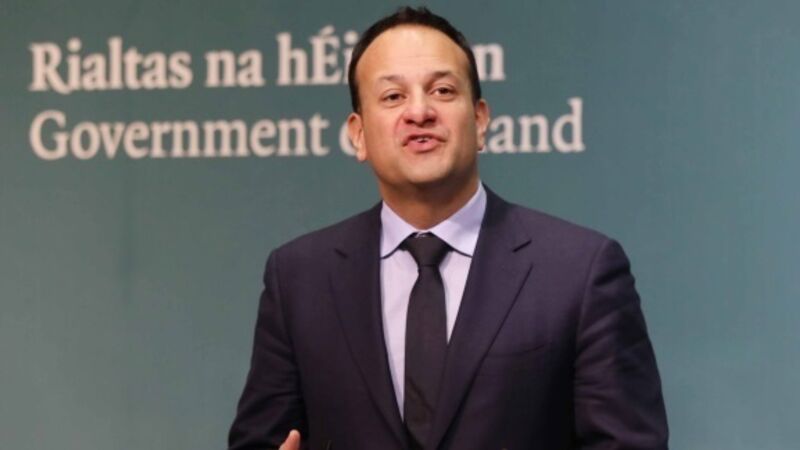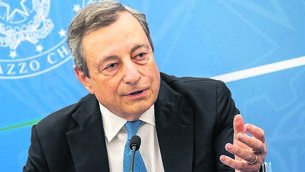General election likely before end of this year

Behind the scenes, everyone is talking about when the fragile minority Government will fall and the country will face a general election, says .
No one is talking about it. Not in public anyway.
Leo Varadkar is not talking about it. Micheál Martin is not talking about. Neither is Paschal Donohoe, the finance minister.
Not even Shane Ross or his Independent Alliance.
But, behind the scenes, they are all talking about it.
What am I talking about?
I am talking about when this fragile minority Government will fall and the country will face a general election.
What the above are not talking about is the chance of an election this side of Christmas, but in reality that is what they are preparing themselves for.
Why?
Just how close we came to an election last November was a massive wake-up call to the whole political system about how vulnerable the Government is to collapse.
While Frances Fitzgerald’s resignation and the media’s hostility to a snap election was enough to pull everyone back from the brink, the pending conclusion of the confidence-and-supply deal this autumn means one of two things can happen.
The first likely outcome is the one articulated by Mr Varadkar in public.
“Well, confidence-and-supply runs until the budget, which will be October of next year,” he said recently.
I think at a certain point, we will have to have a conversation. It is, as you know, an agreement between Fine Gael and Fianna Fáil so at a certain point we will have to have a conversation. Built into it is a review and potentially it could be continued and I certainly see no reason why it can’t be continued beyond the third budget.
“But obviously that is a matter for [me] to discuss with Micheál Martin in the first instance — and we haven’t yet — then the two parties subsequently. I wouldn’t like to see it drop dead the day after the budget either.
"That wouldn’t be in anyone’s interest and it would not be in the best interests of the country certainly to have a government on budget night with a confidence-and-supply agreement but not the day after. So I imagine that conversation will be had at some stage next year but it is not a conversation I have had yet with Micheál Martin so I probably should have it first.”
As the incumbent, Mr Varadkar would no doubt like to extend his term in office as long as possible, given he only assumed the reins in June 2017.
Having all but resolved the internal tensions within his own party, which built up during Enda Kenny’s 15-year leadership, Mr Varadkar is not vulnerable to any sort of an internal challenge any time soon, so he can fully concentrate on being leader of the country.
He has also managed to keep a lid on inter-coalition tensions, despite the recent row over judicial appointments, and the Independents in Government seem happy to continue on as long as possible.
So, as Mr Varadkar pointed out, he would seek to extend the confidence- and-supply deal at least for another year if possible.
But it has been clear since that crisis in November that it is the internal politics within Fianna Fáil that will
determine when the election will happen.
So, the second and now far more likely outcome is that Fianna Fáil will find some reason to collapse the deal either over this October’s budget or some other crisis such as health or housing.
The budget this year is critical as based on existing forecasts, the Government could have as much as €3bn in
additional spending at hand to cut taxes and improve services.
Quietly, several ministers speaking to me have said they do not believe Fianna Fáil will grant them a free run at such a giveaway budget.
“I just don’t see them giving us the ball to score such an open goal,” said one minister to me yesterday.
Publicly, I have to say I want to see the deal extended but, in reality, we are readying ourselves for an election this year.
While Mr Martin has, even in recent days, spoken about honouring the confidence-and-supply deal through the budget, there is an increasing question mark over that commitment.
One of his chief lieutenants said there are literally no reasons as to why Fianna Fáil can stomach any continuance of the arrangement, which they feel has done the party huge damage.
“We are totally neutered by confidence and supply. We get all the shit for propping up the Government but none of the credit,” the party figure said.
“Even if we write the budget and are seen to write the budget, we will not get any credit for it. That is the dilemma for us, so why would we stay in.”
The appointment last week of Dara Calleary as deputy leader of Fianna Fáil is also seen as a move with an eye on the election.
More popular within the party than his leader, Mr Calleary is there to rally the troops and rescue morale, which is clearly at a low ebb.
One other thing that has to be factored into the mix is the outcome of the referendum on the Eighth Amendment. Should the referendum pass, this would be a major boost for the status quo continuing, as the Government could claim it has a mandate to implement the legislation in line with the wishes of the people.
Fianna Fáil would not be thanked if they pulled the plug without the legislation being passed and could lead to a backlash from the public.
Simon Harris, the health minister, spoke on Sunday of the need for people to honour the commitments they have made or risk leaving the job of legislating up to the next Dáil.
That aside, should all get passed in time, then Fianna Fáil would face no such impediment to pulling the plug.
However, with no obvious means of overtaking Fine Gael in the polls, they seem destined to be on the losing end no matter what.
Their only route into Government could be to do the unthinkable and once and for all form the ‘grand coalition’ with Fine Gael.
While they do not have many options, Fianna Fáil will have the say as to when the election will happen.
The smart money is it happening before the end of the year.















